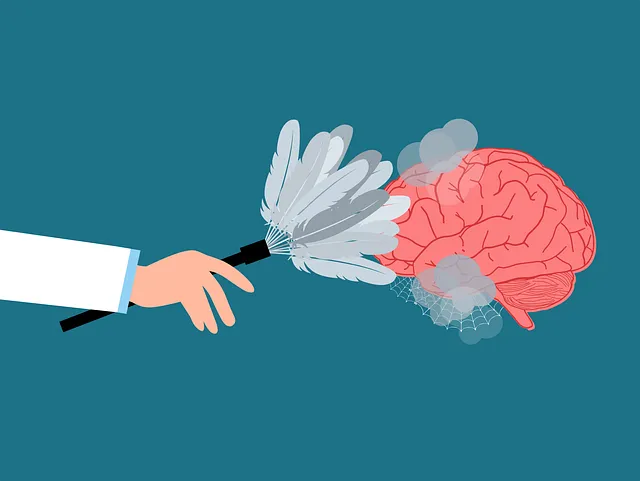The Kaiser Permanente Behavioral Health Center Colorado Springs prioritizes risk assessment and mitigation for optimal mental health care. They empower staff with coping strategies like Mood Management and Mindfulness Meditation, encourage self-care routines, and provide regular training on recognizing and addressing risks. Through evidence-based practices, workshops, and open communication, the center fosters a supportive environment, enhances professional growth, and improves patient outcomes while ensuring staff resilience.
At the Kaiser Permanente Behavioral Health Center Colorado Springs, risk assessment is a cornerstone of patient safety. This article explores comprehensive strategies for mental health professionals to navigate and mitigate risks within clinical settings, drawing insights from the Center’s best practices. We delve into understanding risk assessment, identifying potential hazards, and implementing effective management techniques. By leveraging these strategies, healthcare providers can ensure optimal patient care and foster a resilient environment at the Kaiser Permanente Behavioral Health Center Colorado Springs.
- Understanding Risk Assessment at Kaiser Permanente Behavioral Health Center Colorado Springs
- Identifying and Mitigating Risks in Mental Health Practice
- Strategies for Effective Risk Management in a Clinical Setting
Understanding Risk Assessment at Kaiser Permanente Behavioral Health Center Colorado Springs

At Kaiser Permanente Behavioral Health Center Colorado Springs, risk assessment is a cornerstone of patient care. This process involves meticulously evaluating and understanding various factors that could impact a mental health professional’s well-being, both personally and professionally. By incorporating strategies like Mood Management and Mindfulness Meditation into their workflow, the center aims to equip its practitioners with robust coping mechanisms. Such practices not only enhance their resilience but also enable them to provide more effective support to patients dealing with similar challenges.
Furthermore, Kaiser Permanente Behavioral Health Center Colorado Springs promotes Self-Care Routine Development for Better Mental Health as a proactive measure. Recognizing that mental health professionals are at the frontlines of patient care, the center emphasizes the importance of maintaining one’s own emotional and psychological health. Through comprehensive risk assessment, self-care routines, and continuous professional development, Kaiser Permanente Behavioral Health Center Colorado Springs is committed to fostering an environment where mental health professionals can thrive while delivering exceptional care to their patients.
Identifying and Mitigating Risks in Mental Health Practice

Identifying and mitigating risks is an integral part of mental health practice, especially at a center like the Kaiser Permanente behavioral health center Colorado Springs. Mental health professionals constantly navigate complex situations, dealing with sensitive information and intense emotions. Therefore, it’s crucial to implement robust risk assessment strategies. These should include regular staff training on identifying warning signs of distress or potential risks in clients’ lives, as well as promoting self-care practices within the team. By fostering a culture that prioritizes self-esteem improvement and encourages open communication, professionals can better support both themselves and their patients.
Additionally, implementing evidence-based stress reduction methods and providing resources for effective self-care practices can significantly mitigate risks. The Kaiser Permanente behavioral health center Colorado Springs can lead by example by offering workshops on time management, mindfulness, and emotional regulation. Such initiatives not only enhance the well-being of mental health professionals but also equip them with valuable tools to guide their clients towards better mental health outcomes.
Strategies for Effective Risk Management in a Clinical Setting

Effective risk management is paramount for mental health professionals at Kaiser Permanente behavioral health center Colorado Springs to ensure patient safety and maintain a conducive work environment. Strategies should encompass a multi-faceted approach, including comprehensive risk assessment tools tailored to individual needs. Regular staff training on identifying potential risks, such as patient self-harm or inter-professional conflicts, is essential.
Implementing evidence-based practices like mental wellness coaching programs development and stress management workshops organization can significantly mitigate risks. These initiatives foster a culture of open communication, early intervention, and proactive support. By prioritizing self-esteem improvement through these organized programs, the center not only enhances patient outcomes but also strengthens the resilience of its workforce, ultimately contributing to a safer and more productive clinical setting.
Mental health professionals at the Kaiser Permanente Behavioral Health Center Colorado Springs face unique challenges that require robust risk assessment and management strategies. By understanding the risks inherent in their practice, such as patient self-harm, professional burnout, and ethical dilemmas, they can proactively identify and mitigate these dangers. Implementing effective risk management strategies, including thorough screening, continuous training, and collaborative support systems, ensures a safer and more supportive clinical environment for both patients and practitioners. These measures are vital to maintaining high-quality care at the Kaiser Permanente Behavioral Health Center Colorado Springs.






